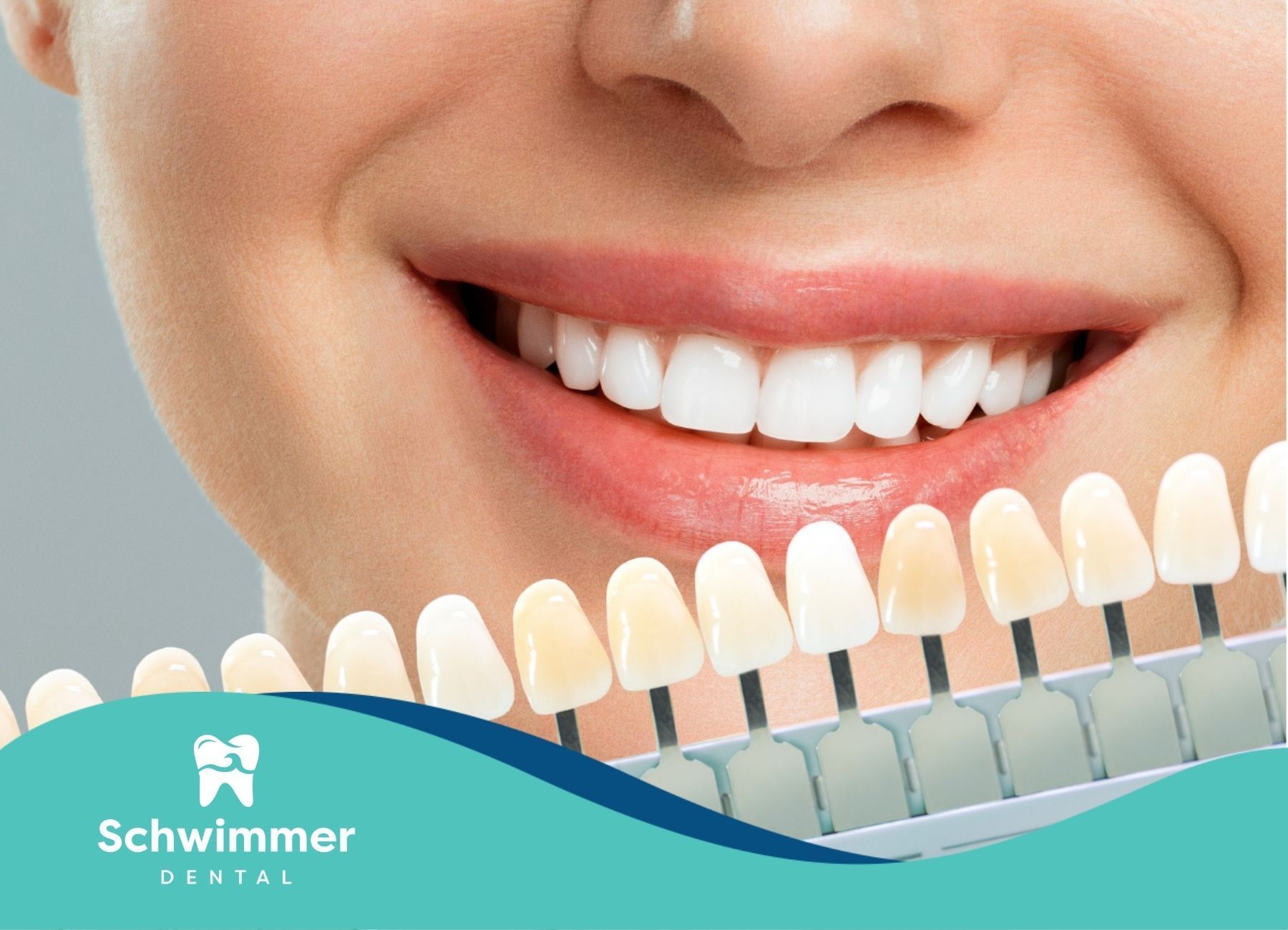Genetic Disorders That Affect Teeth: Causes & Treatment Options
Did you know that genetics play a significant role in your dental health? While oral hygiene and diet influence the condition of your teeth, some individuals inherit genetic disorders that affect their teeth's structure, strength, and appearance. These conditions can lead to enamel defects, misalignment, and increased susceptibility to cavities and gum disease.
In this article, we’ll explore common genetic disorders that impact dental health, their symptoms, and available treatment options. Understanding these conditions can help individuals and families take proactive steps to manage their oral health effectively.
How Genetics Influence Dental Health
Your genes determine more than just your eye color or height—they also influence tooth size, shape, enamel strength, and jaw structure. Certain inherited conditions can affect how your teeth develop, leading to unique dental challenges.
While some genetic disorders directly impact tooth enamel, dentin, and eruption patterns, others affect bone structure and gum health. The severity of these conditions varies, with some requiring lifelong dental care and specialized treatment.
Let’s dive into some of the most well-known genetic disorders that affect teeth.
Common Genetic Disorders That Affect Teeth
1. Amelogenesis Imperfecta (AI)
What Is It?
Amelogenesis Imperfecta is a rare genetic disorder that affects enamel formation. People with AI have thin, weak, or improperly formed enamel, leading to tooth discoloration, sensitivity, and rapid wear.
Symptoms:
- Yellow, brown, or gray discoloration of teeth
- Increased sensitivity to hot, cold, and sweet foods
- Teeth that wear down easily or chip frequently
- Rough or pitted enamel surfaces
Treatment:
- Fluoride treatments to strengthen enamel
- Dental bonding or crowns to protect weakened teeth
- Regular dental check-ups to prevent decay and damage
2. Dentinogenesis Imperfecta (DI)
What Is It?
Dentinogenesis Imperfecta affects the dentin layer beneath the enamel, making teeth appear translucent, discolored, or opalescent. The condition also makes teeth more brittle, increasing the risk of fractures and wear.
Symptoms:
- Blue, gray, or amber-colored teeth
- Weak or brittle teeth prone to breaking
- Early loss of primary (baby) teeth
- Rapid enamel wear, exposing the softer dentin
Treatment:
- Crowns or veneers to improve appearance and protect fragile teeth
- Fluoride treatments to strengthen remaining enamel
- Orthodontic care if misalignment occurs
3. Hypodontia (Missing Teeth)
What Is It?
Hypodontia is a condition where some permanent teeth fail to develop. This condition runs in families and is often linked to other genetic disorders such as ectodermal dysplasia.
Symptoms:
Missing one or more permanent teeth (excluding wisdom teeth)
Gaps between teeth or misalignment due to missing teeth
Delayed eruption of permanent teeth
Treatment:
- Dental implants or bridges to replace missing teeth
- Braces or Invisalign to correct spacing and alignment
- Partial dentures for severe cases
4. Hyperdontia (Extra Teeth)
What Is It?
Hyperdontia is a condition where an individual develops extra teeth, also called supernumerary teeth. These extra teeth may cause crowding, misalignment, and difficulty chewing.
Symptoms:
- Extra teeth growing in unusual places
- Overcrowding and difficulty cleaning teeth properly
- Jaw pain or difficulty chewing
Treatment:
- Extraction of extra teeth to prevent misalignment
- Braces or Invisalign to correct spacing issues
- Regular monitoring by a dentist to assess dental development
5. Ectodermal Dysplasia
What Is It?
Ectodermal Dysplasia is a group of genetic disorders that affect hair, nails, sweat glands, and teeth. This condition often leads to missing teeth, abnormal tooth shape, and poor enamel quality.
Symptoms:
- Missing or misshapen teeth (often peg-shaped)
- Dry mouth due to underdeveloped salivary glands
- Thin or brittle nails and sparse hair growth
Treatment:
- Dental implants or dentures to restore function and appearance
- Saliva substitutes or hydration strategies to manage dry mouth
- Orthodontic treatment to improve alignment
6. Cleidocranial Dysplasia (CCD)
What Is It?
Cleidocranial Dysplasia is a genetic condition that affects bone development, including the skull, collarbones, and teeth. People with CCD often experience delayed tooth eruption, extra teeth, and misaligned jaws.
Symptoms:
- Delayed loss of baby teeth
- Supernumerary (extra) teeth
- Wide spacing between teeth
- Underdeveloped or missing collarbones
Treatment:
- Oral surgery to remove extra teeth
- Braces or Invisalign for proper alignment
- Jaw surgery in severe cases to correct skeletal issues
Managing Genetic Dental Disorders
If you or a loved one has a genetic condition that affects dental health, early diagnosis and proactive treatment are key. Here are some steps to maintain a healthy smile:
1. Regular Dental Check-Ups
Frequent dental visits help monitor oral health, detect issues early, and prevent complications.
2. Custom Treatment Plans
Dentists may recommend specialized treatments like crowns, implants, or orthodontic care to manage symptoms effectively.
3. Strong Oral Hygiene Routine
Brushing twice daily, flossing, and using fluoride toothpaste can help protect teeth that are more prone to decay and damage.
4. Fluoride Treatments
For conditions like Amelogenesis Imperfecta, fluoride applications can strengthen enamel and reduce sensitivity.
5. Restorative and Cosmetic Dentistry
Procedures like veneers, bonding, and dentures can improve both function and aesthetics for affected individuals.
When to See a Dentist
If you notice tooth discoloration, rapid enamel wear, missing or extra teeth, or unusual tooth shapes, it's essential to consult a dental professional. Early intervention can prevent long-term complications and improve your quality of life.
At Schwimmer Dental, we specialize in diagnosing and treating dental conditions, including genetic disorders. Our team provides personalized care to help you maintain a strong and healthy smile. Schedule an appointment today to discuss your dental health needs.
Frequently Asked Questions
Can genetic dental disorders be prevented?
No, genetic disorders cannot be prevented, but early detection and proper dental care can help manage symptoms and maintain oral health.
What should I do if my child has a genetic dental disorder?
Start with regular dental check-ups to monitor their condition. Your dentist may recommend orthodontics, fluoride treatments, or restorative procedures to address specific issues.
Can braces fix genetic dental issues?
Yes, orthodontic treatment like braces or Invisalign can help correct misalignment and spacing problems caused by genetic conditions. However, additional treatments may be needed depending on the disorder.
Sources:
- https://pmc.ncbi.nlm.nih.gov/articles/PMC4054073/
- https://medlineplus.gov/genetics/condition/amelogenesis-imperfecta/
- https://rarediseases.info.nih.gov/diseases/6258/dentinogenesis-imperfecta
- https://emedicine.medscape.com/article/1110595-overview
- https://pmc.ncbi.nlm.nih.gov/articles/PMC4319293/



